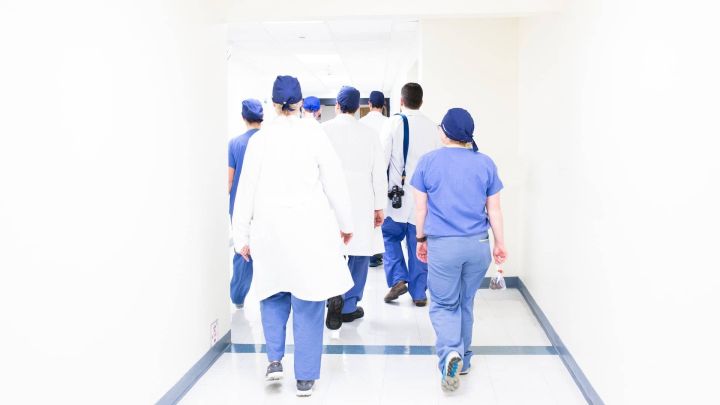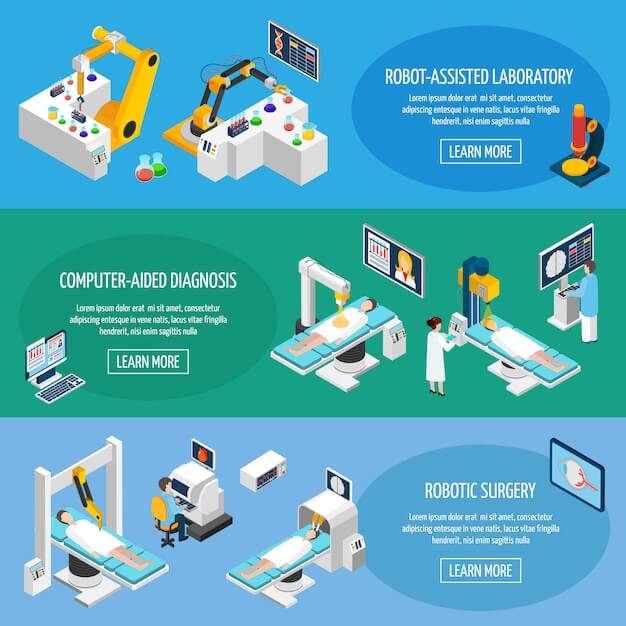Apparatus
Robots perform surgery more accurately and skillfully than humans? Research says it's not
According to Telegraph, a new study shows that human doctors will still outperform "robot doctors" in surgery. Compared with robots, human doctors need shorter time to complete surgery, and the error rate is not high.

According to Telegraph, a new study shows that human doctors will still outperform "robot doctors" in surgery. Compared with robots, human doctors need shorter time to complete surgery, and the error rate is not high.
Since the debut of the first "robot doctor" in Britain more than a decade ago, the implementation of robot surgery has been rising. Whether in prostatectomy, cystectomy, nephrectomy, or tumor resection, surgical robots have been playing an increasingly important role.
According to people's common understanding, surgical robots will certainly be more accurate, more skilled and faster than human doctors to perform surgery. However, a recent study revealed an diametrically opposite conclusion: for patients, surgical robot doctors will not improve their treatment effect, but will also make the operation time longer.
Researchers from Stanford University School of Medicine, who led the study, collected data on 25000 operations performed in 416 hospitals in the United States between 2006 and 2012.

They found that only 28% of patients who underwent minimally invasive nephrectomy by human doctors experienced more than four hours of surgery. In contrast, nearly 46% of all patients receiving "robot doctor" surgery spent more than 4 hours under the scalpel.
Dr. Benjamin Chung, associate professor of urology at Stanford University, said: "We found that although there is no statistical difference in surgical treatment effect and hospital stay, the cost of surgery with robot participation is higher, and the possibility of prolonging the hand operation time is also higher."
At present, there are about 60 "Da Vinci robots" in the British hospital system, which provide robot assisted surgery services. The cost of each "Da Vinci robot" is about 1 million pounds (about 8.714 million yuan). These surgical robots provide 3D enhanced surgical images and special medical instruments such as micro cameras and micro tools.
At the same time, these Stanford University researchers also said that robots have undoubtedly played a great role in some fine operations, which require a higher level of meticulous operation or expandable internal suture.
But this new study shows that human doctors are likely to perform better in surgical operations that are not technically difficult, such as removing the entire kidney.
Although these researchers also said that as time goes by, the time required for robots to perform surgery will become shorter, and the cost gap between human doctors and "robot doctors" to perform surgery will also be shortened, as far as the current situation is concerned, research results show that robot assisted surgery is not always the best choice for patients.
"Everyone must have the impulse to use the most expensive medical equipment," Dr. Yong added.
"But it is also important to maintain rational consumption. We should know how to spend the life-saving money."
"Although there are some advantages for robots to perform surgery, these advantages can really convince us that the extra money is really worth it?"
-
![]()
![]() ApparatusDec 21, 2024
ApparatusDec 21, 2024J. Enzyme Inhib. Med. Chem. | Protac Targeting Aimp2-Dx2: a New Therapy For Lung Cancer
-
![]()
![]() ApparatusDec 20, 2024
ApparatusDec 20, 2024Canada has developed a hand-held detector to help reduce the use of antibiotics
-
![]()
![]() ApparatusDec 19, 2024
ApparatusDec 19, 2024Check breast cancer like drinking and driving: breath detector capable of diagnosing various diseases
-
![]()
![]() ApparatusDec 18, 2024
ApparatusDec 18, 2024Inventory Of Fda-Approved Adc Drugs
-
![]()
![]() ApparatusDec 17, 2024
ApparatusDec 17, 2024Robots perform surgery more accurately and skillfully than humans? Research says it's not



